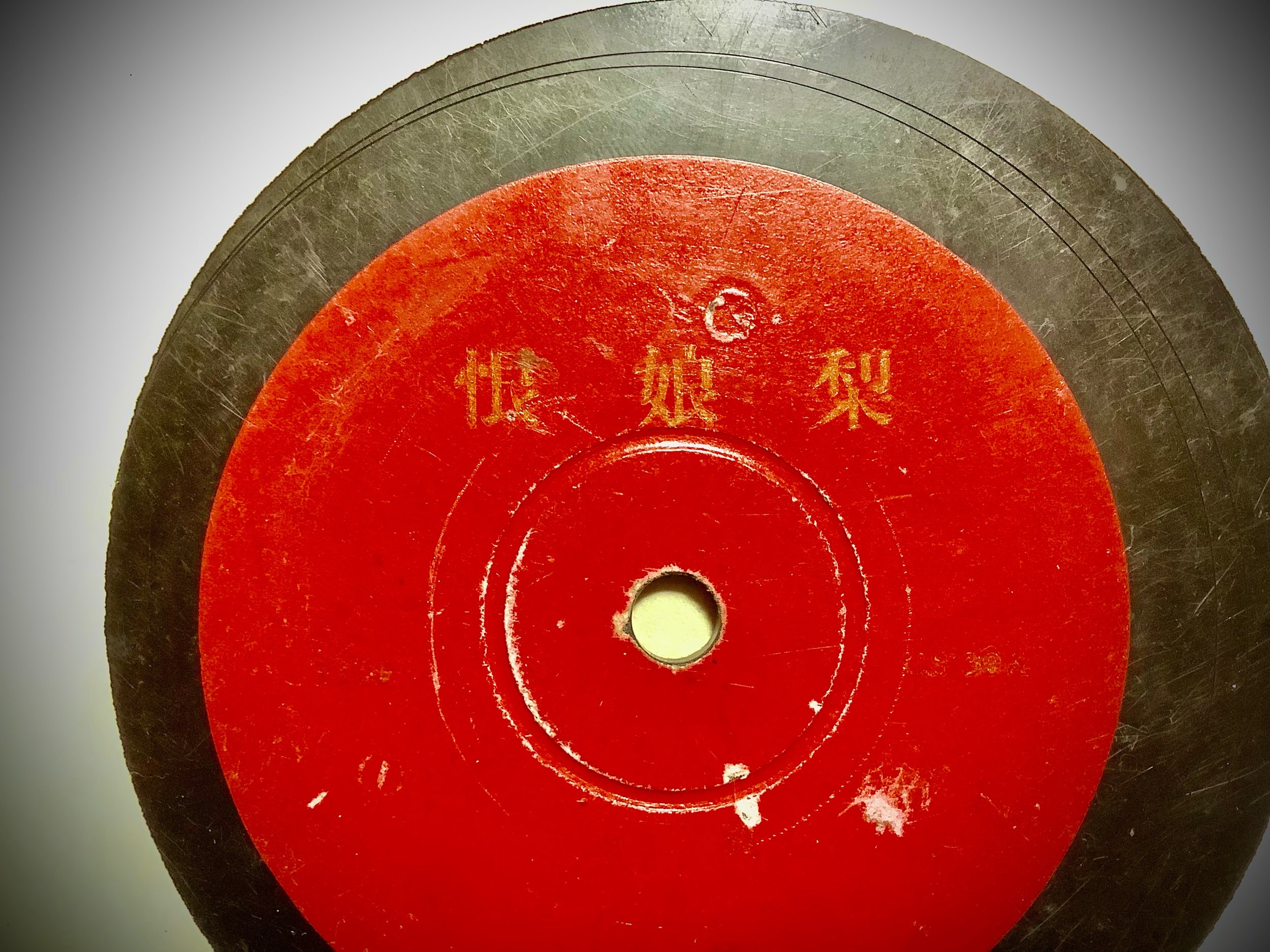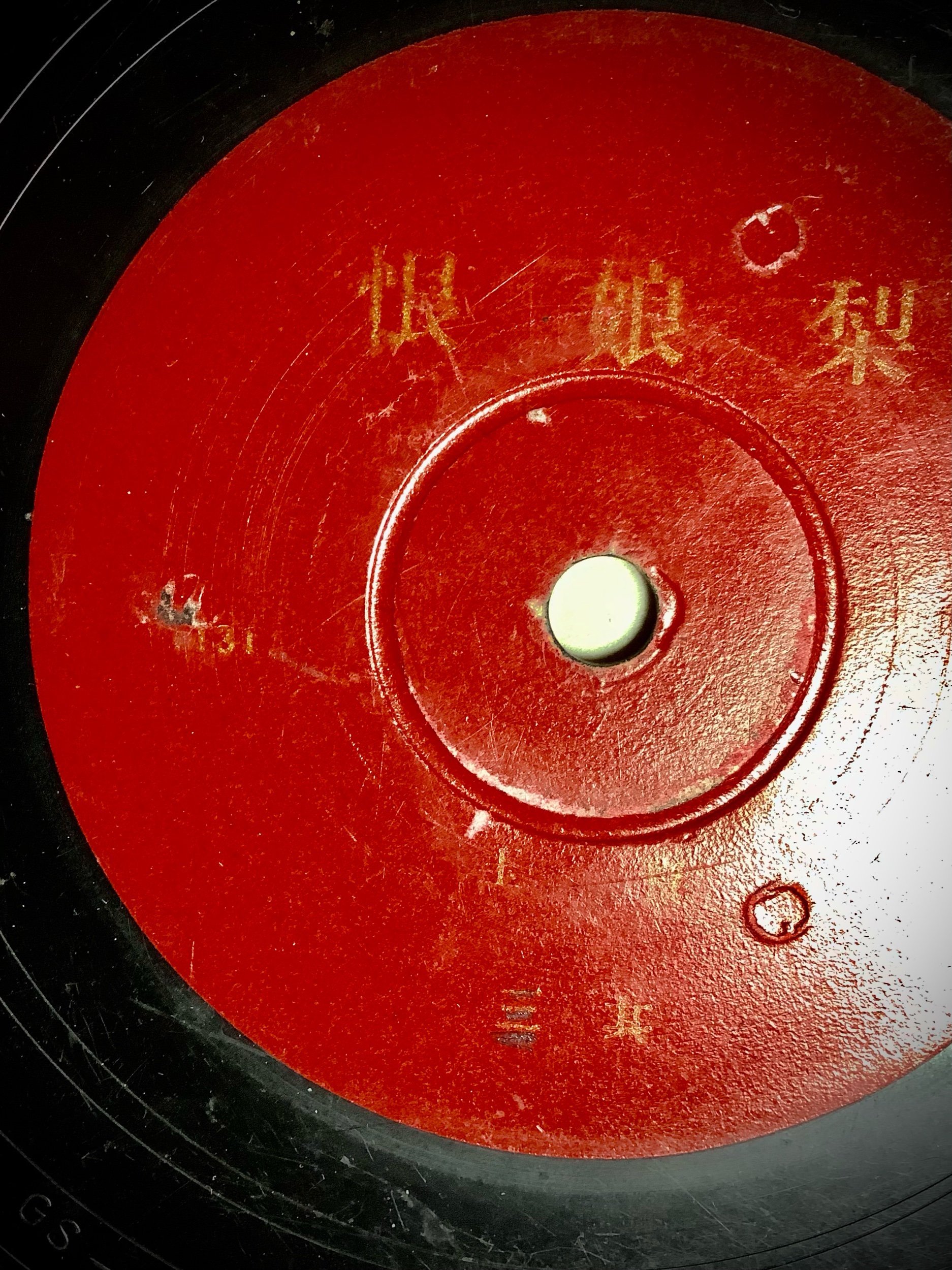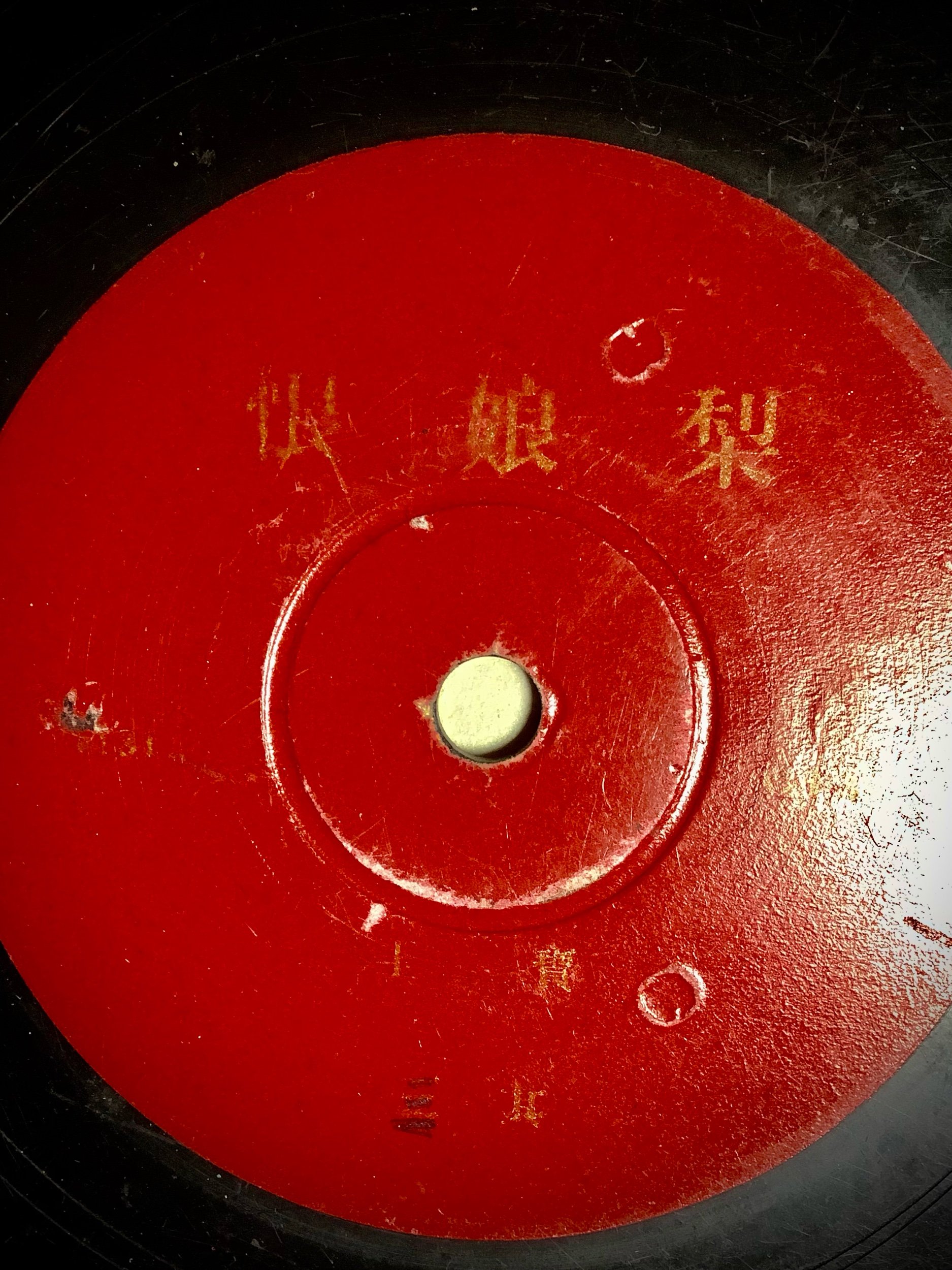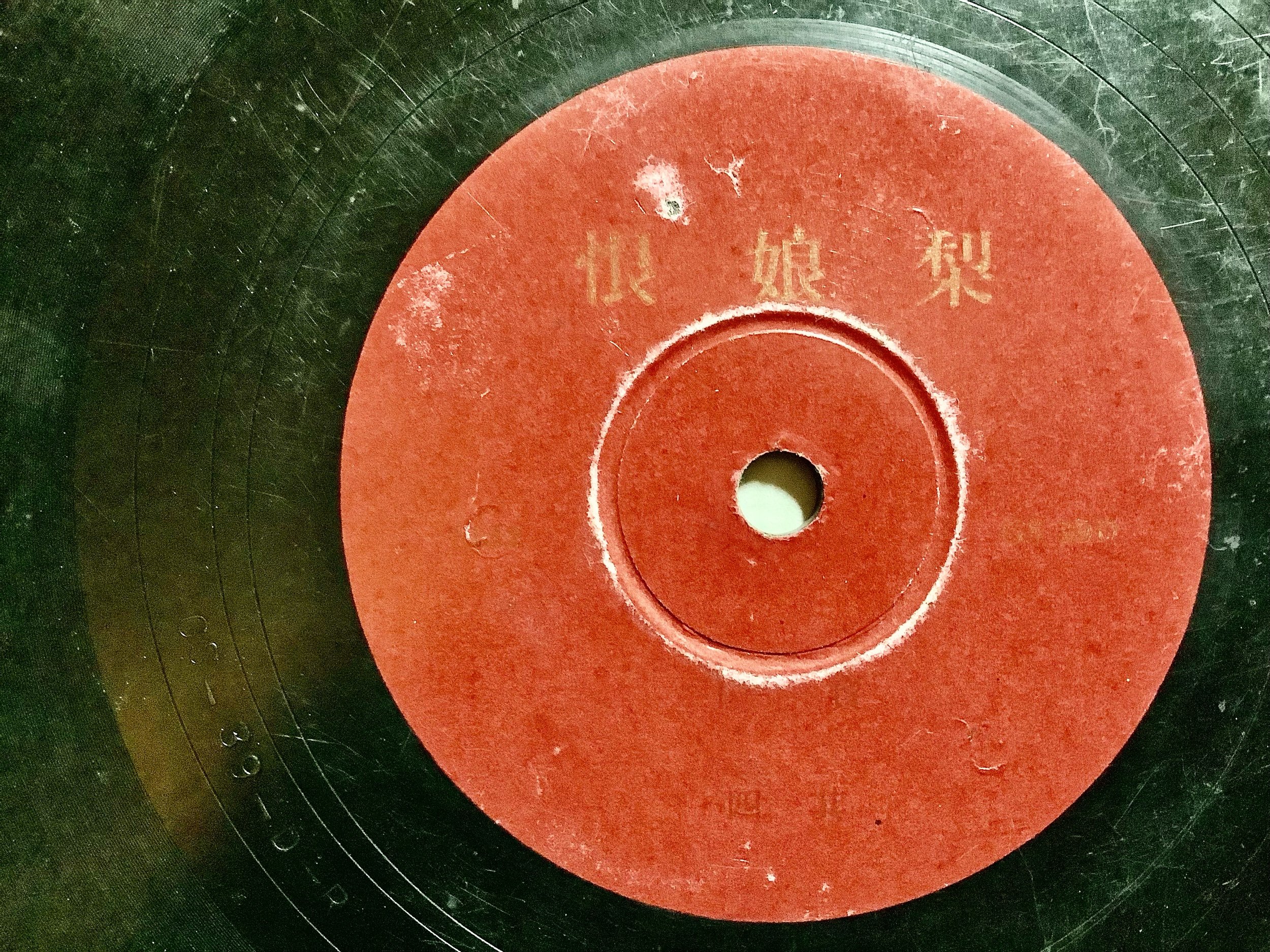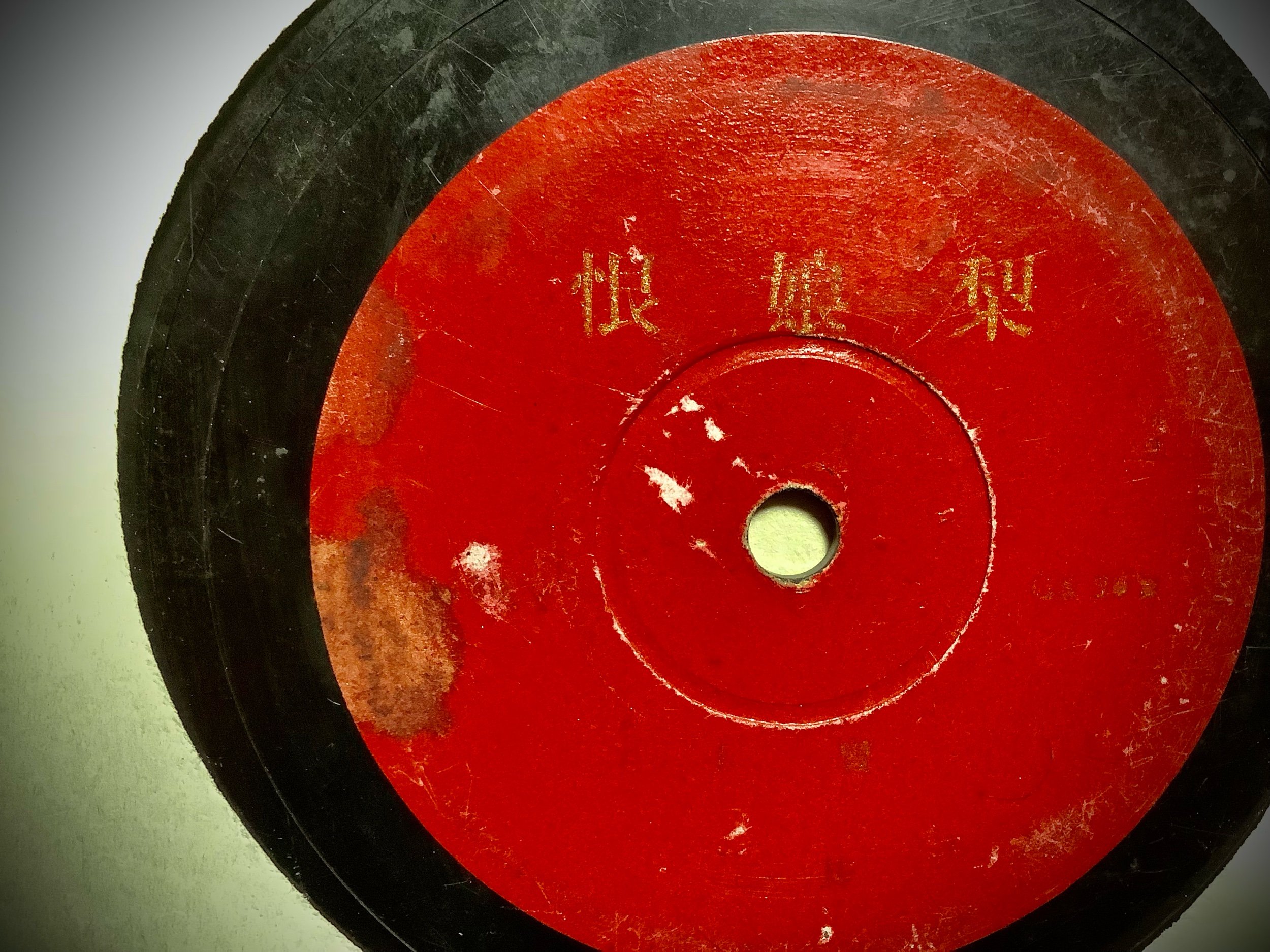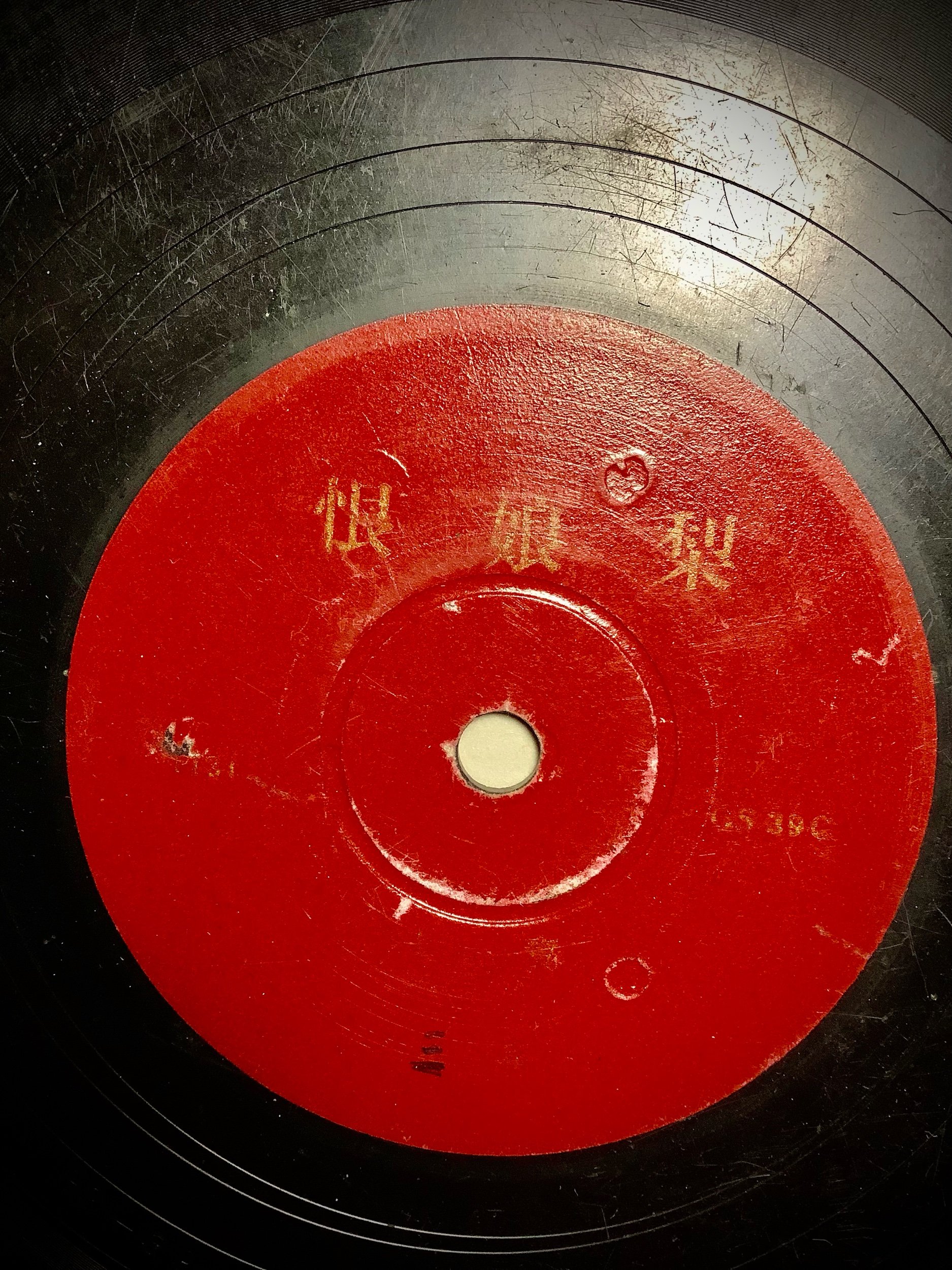Approaching the end of 2021...
I found a reason to breathe some life into this blog that had just been drifting out there, an amber satellite in my celestial sphere.
A former bandmate and “old Portland” buddy of mine, Carl Annala, sent me some cassette compilations of fave rekkids from his late dad’s eclectic vinyl collection, dj’ed-up a little here and there in a dada/ psychedelic spirit. It got me thinking about the super neglected box of heavy fragile shellac 78’s from my grandparents (my mom’s parents).
Inherited by default in that nobody else in the family had an interest— the musical, which is to say somehow, emotionally-fraught, legacy of my grandparents’ internal lives. I can barely attempt to translate (via Google Translate) the titles of songs, but there’s lots of homesickness, longing, regret and passion represented in the subject matter of the 90-or-so {literally} crumbling platters in my custody.
The music we love to listen to surely “stamps” us just as long ago, metal plates stamped grooves on the hot, soft lacquer discs that arrived in months to follow at Grandma and Grandpa’s house in Louisville, Kentucky. That’s how the Columbia, RCA, Regal, Golden Star and Num Sing record factories pressed em somewhere in India, as well as London, Hong Kong, San Francisco, and Camden, New Jersey. Think of the feeling you get when you hear a favorite song on the radio at a choice moment. Consider what it meant to Grandma and Grandpa to hear familiar voices from back home, singing well-known tunes in their native language— in a time when radio was limited to hyper local stations, and television barely existed as an idea..
There they were, a humongous distance away from the “music scene” (and so much else) of their former lives…. what would that music scene have consisted of? I have some vague notion that there’s a long history (sometimes blood lineage and sometimes by mentorship/tutelage) of Cantonese folk opera musicians (instrumentalists and vocalist/actors) that get most of their gigs by traveling to villages for festivals, maybe other celebrations like weddings or funerals. Party bands. Instruments and vocal styles designed to carry without electrical amplification, though now they do carry small PA’s and lighting rigs in their dusty box trucks. Songs and stories older than Shakespeare, some Beowulf-old, others maybe on the level of Homer/ Virgil, with time’s mutations, variations and elaborations. When I traveled with my family on the Overseas Chinese Genealogical field trip detailed previously in this blog, our tour group was treated to a private outdoors performance of some typical Cantonese folk opera, under an actual banyan tree (the banyan tree time machine, I call it) , performed by the contemporary representatives of the musical form.
Listening to the two dozen tracks I’ve digitized so far, I am starting to realize the range/diversity of styles on the records is much more/ bigger/ broader than I expected. To call something “Cantonese opera” is no more descriptive than to say something is “indie rock,” and that would only be a fair comparison after indie rock gets a few centuries under its belt.
So I’m rediscovering How To Blog now that I have something I think deserves my blogging. I’ll tell you I may be an overthinker, but I was growing uneasy about the implications of putting too much information in the public domain about people I met and whose homes I visited as a foreigner in my ancestral homeland. Things are weird in the conspiratorial air people breathe and I wish to be nothing but intentional. I’d hate for anybody to be under suspicion for what we did together, which was catch up on our knowledge of shared family history.
And there’s the circle around the circle, 78 times a minute, 3.5 minutes a side. Check back here as I navigate the world of open source audio archiving.. I’m also discovering the wild world of the internet in Chinese, as an illiterate language-lurker, via google translate, which is better than nothing but not by much.
Here are three audio tracks that represent the worst condition of what I have in the collection. These first 2 are the versions I got after I tried to use software to clean up the sound! The first one is the sides A&B and the 2nd is sides C&D. Both discs are in pretty bad shape— A&B with a big chip out of the edge and both with the wavy matte wear marks of a rekkid that lived sleeveless for a while. I realized after processing my first dozen or so rekkids that I was using the Select function wrong in Audacity and over-applying multiple takes of “noise reduction” where it probably would have been best left alone. I’m doing it correctly now & going forward, but I’m too lazy to go back and re-do these just yet…
Title : 梨娘恨 Lí niáng hèn (Lady Li hates)
Artist: 周寶玉 Zhōu Bǎoyù
Having said all that, I actually really like the music and the scuzzy weird distortion. The musicians are quite talented and the rhythm is compelling. There’s almost a blue mood to it. I definitely want to know more about the story of the song/ theme and what instrumentation they have going. The second of the 2 discs does sound noticeably better….
And, because I’m trying to build my skills at posting such things, I’m giving you a bonus version (for comparison) of how the “raw” audio sounded before the attempted fixes. It just so happens I’m making these “raw” versions to upload to a virtual multimedia library website, the Internet Archive. It’s kind of a scholarly repository for such things and they want them in the minimally processed state.
Here’s the same recording of the song, on a YouTube channel that features lots of Cantonese folk opera.
The video has a lyric sheet shown in it. I applied my ridiculously tedious and unsatisfactory google translate technique. (I’m curious to find out what Lady Li hated/ regretted—one character/ word in Chinese ( 恨) is used for both “hatred” and “ regret.” Non-spoiler alert: this half of the lyric sheet doesn’t ever say. ) Some of the characters are illegible, obscure or archaic and I have no idea how close I landed to the intended meaning of the song. And despite all the amputations, my weird efforts unearthed an unexpectedly powerful, uncannily universal tale of emotional turmoil. I’m gonna guess unrequited love was the culprit.
(Unfortunately, the transliterations below are to standard Mandarin 汉语拼音 hànyǔ pīnyīn and won’t match how the singer pronounces the words in Cantonese. Will have to get some help with that. The lyric sheet reads in columns, starting at the top of the right side and reading down. Here it is going left to right: )
(窮嫉訴命) (Qióng jí sù mìng) (Pissed off)
怩恨恨天, Ní hèn hèn tiān, Bitterly hateful,
絶冇憐儂意Jué mǎo lián nóng yì Absolutely no pity
怩恨恨天, Ní hèn hèn tiān, Bitterly hateful,
絶冇憐儂意 Jué mǎo lián nóng yì Absolutely no pity
自怨一句儂命鄙 , Zì yuàn yījù nóng mìng bǐ, Blaming myself for this ruined fate,
夜夜裡空慘悽Yè yèlǐ kōng cǎn qī, Every night empty inside, tragic, wretched,
自係愛君棄世, Zì xì ài jūn qì shì, My self-worth has expired,
念在慨難巳,Niàn zài kǎi hèn nán sì, Regret makes reading difficult,
淚流沢流洒衫衣 Lèi liú zé liú sǎ shān yī, Tears streaming down shirt,
斷睊斷睊聲哭嘶, Duàn juàn duàn juàn shēng kū sī, Sobbing and crying chokes voice,
我此後,冀想要,Wǒ cǐhòu, jì xiǎng yào, I forevermore, hope/think/want,
在月下共談詞, zài yuè xià gòng tán cí, Exist under the moon together talking,
啱吔奴奴心似Yán yě nú nú xīn sì Rasping, yelling, enslaved heart
